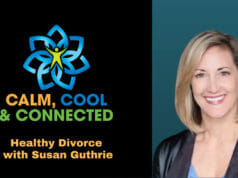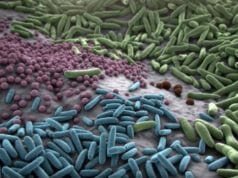
By Dr. William Rudolph
Colorectal Surgeon
Sentara Surgery Specialists
Several years ago, I began noticing many of the patients who came to me to be treated for rectal cancer were quite young. A review of the literature at that point suggested a definite trend toward rectal cancer in younger patients.
Other studies also suggested a higher rate of death in younger patients with colorectal cancer (https://www.sentara.com/medicalservices/services/colorectal-cancer.aspx). Whether or not this was due to more advanced cancers at the time of diagnosis, poorer response to chemotherapy or other factors is not known.
Recent Study by the American Cancer Society
A new study from the American Cancer Society has confirmed these earlier reports. The study looked at more than 400,000 patients diagnosed with colorectal cancer from 1974-2013. The authors found that the rates of developing colon cancer in patients 55 years old or less have doubled, and the risk of developing rectal cancer in that same age range has quadrupled.
In fact, despite the overall decline in the incidence of colorectal cancer for many years, attributed to increased screening primarily with colonoscopy, the risk of developing colorectal cancer in millennials (born 1977-1995) and Generation Xers (born 1965-1976) is back to the rates not seen since 1890.
Why is Colon Cancer Increasing in Young Adults?
The next logical question is why is this happening? Of course, no one knows for certain. Some researchers suggest that environmental influences may play a role. Different types of plastics, fertilizers and other substances may contribute.
The authors of the study mirror what not only colon and rectal surgeons, but physicians in general, have been saying. The obesity epidemic may be at least in part to blame. A sedentary lifestyle and a diet high in processed foods and low fiber may result in inflammatory/carcinogenic (cancer causing) factors, which may be why we are seeing an increase in colorectal cancer in the younger generations.
How Can We Reduce Our Risk of Colon Cancer?
- Adopt Healthier Eating Habits: Increase the fiber in your diet through fruits, vegetables, and whole grains. Reduce the amount of processed foods, high fructose corn syrup and red meats.
- Exercise More: Exercise helps with your overall health. You should exercise several times a week and, in general, increase your activity level.
- Know the Symptoms: If you have one of the signs of colon and rectal cancer, (https://www.sentara.com/medicalservices/services/colorectal-cancer/about-colorectal-cancer/symptoms.aspx) like rectal bleeding, abdominal or pelvic pain, a change in bowel habits, or an unexplained weight loss, get checked by a medical professional, no matter what your age is.
The chance that we can cure someone with colorectal cancer is directly proportional to how early we diagnose it, or even better, prevent it. Take your health very seriously and don’t become one of the estimated 135,480 Americans who will develop colorectal cancer in 2017. If you are concerned about your colon cancer risk, make sure you talk with your primary care provider.
Learn how to shop for a healthy colon:
For more information, visit http://sentaracancer.com/
























